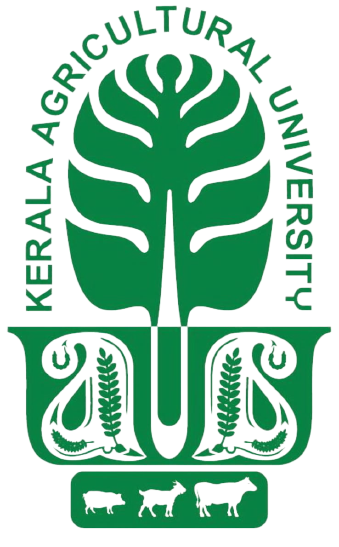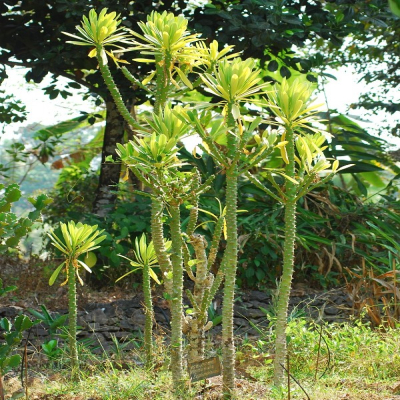Euphorbia nivulia Buch.Ham.
Family : Euphorbiaceae
Parts Used : Leaf , Whole plant , Milk
Vernacular Names :-
| English | : | Euphorbia |
| Malayalam | : | Ilakkalli |
| Hindi | : | Sij |
| Sanskrit | : | Patrasnuhi |
| Bengali | : | Sij , Zakum |
| Gujarathi | : | Gangichu, Thorkantalo. |
| Kannada | : | Nevagunda, Katathuhar |
| Tamil | : | Naga kalli |
| Telungu | : | Akujemudu |
Distribution and habitat: Found throughout Western Peninsula cultivated in Ceylon, Baluchistan, Malay Islands
Botany: A large branched shrub or small tree, 1.8-4.5 m, with the pairs of stipular spines on tubercles or swellings of the branch lets.
- Leaves: Obovate.
- Inflorescence: Involucres yellowish, 3-7 in a cyme, usually 3, with a very short fleshy peduncle about 3.8 mm long. Lobes of involucres broadly cuneate and imbricates. Anthers sagittate, apiculate.
- Fruits: Tricoccus; seeds brownish.
Properties: Expectorant, digestive, stomachic, abortive, carminative
Chemical constituents: The whole plant contains Euphol. Stem and leaves have taraxerol.n-hexacosanol , euphorbol, hexacosanoate and pelargonin-3,5-diglucoside are found in bark.
Uses: A bdominal troubles, bronchitis, tumors, delirium, enlargement of the spleen tumors, leucoderma appetite, inflammations
Formulations: vajra-kshar, snuhugadi-taila, snuhayadi-varti.

